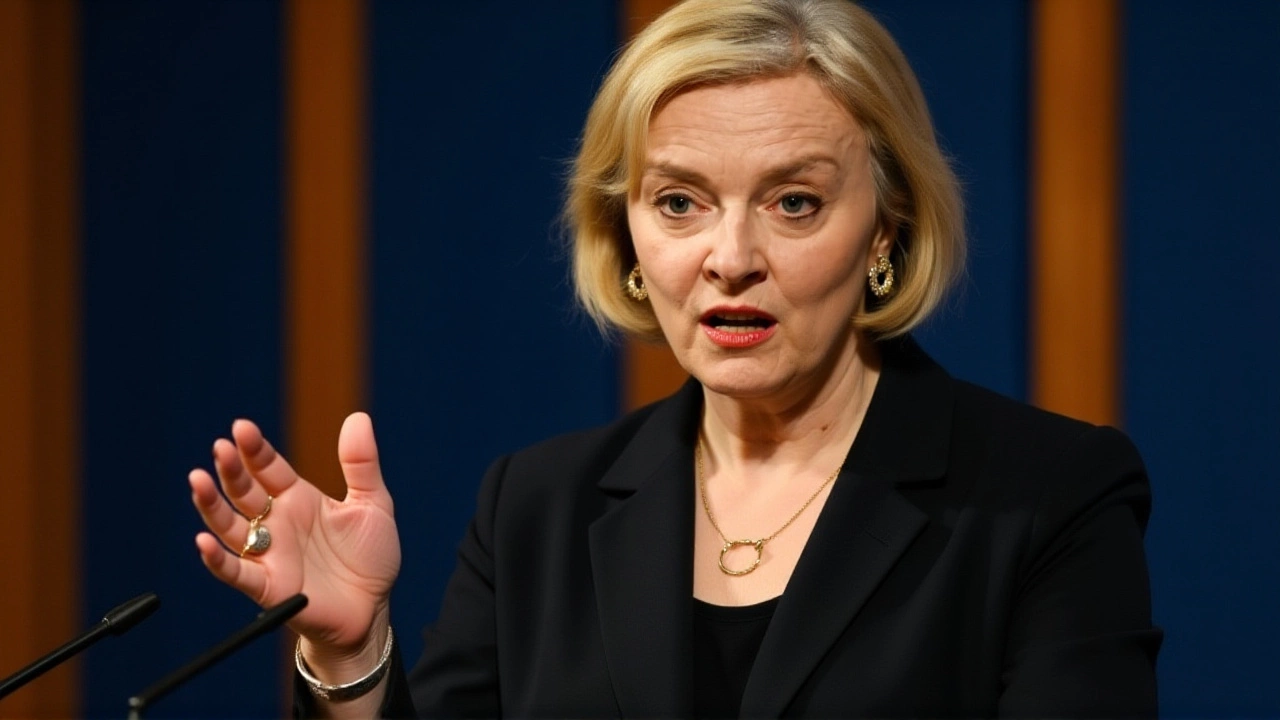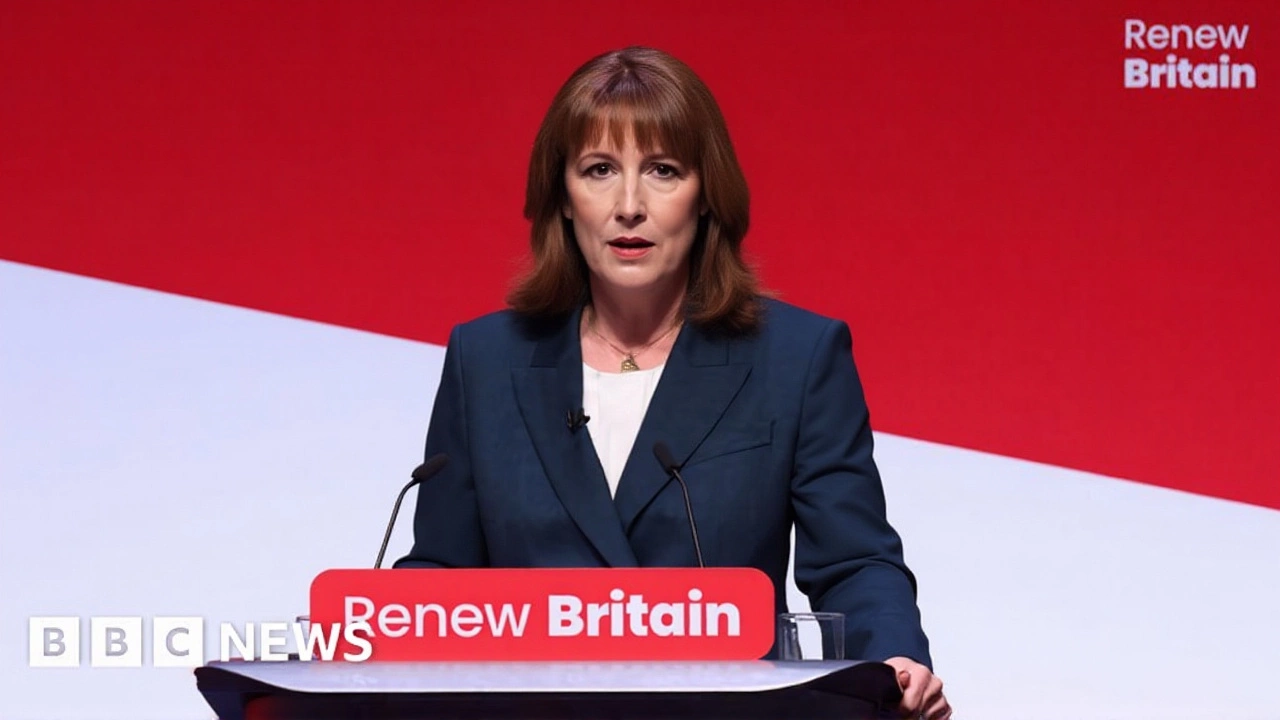Chancellor of the Exchequer Rachel Reeves didn’t announce a tax hike — but she didn’t need to. On September 29, 2025, speaking in Liverpool, she laid out the case for one anyway. With the Office for Budget Responsibility’s critical economic assessment due just days later, Reeves made it clear: the UK’s fiscal room for maneuver is vanishing. And while she insists Labour’s manifesto pledge — no rise in income tax, National Insurance, or VAT — still stands, the tools she’s preparing to use feel like tax hikes in all but name.
The Quiet Tax Surge
Here’s the thing: you don’t need to change the tax rate to take more money from people. You just need to leave the thresholds frozen. That’s exactly what Reeves is planning. The basic income tax threshold — £12,570 — and the higher-rate threshold — £50,270 — will remain unchanged until 2030. With inflation still nudging wages up, hundreds of thousands of workers are being slowly pulled into higher tax brackets. It’s called fiscal drag. And according to The Times, it’ll cost a typical middle-class family with two earners £1,600 over two years. No letter. No new law. Just the passage of time and a government that won’t adjust the numbers.
It’s not just income tax. The Office for Budget Responsibility’s draft figures, delivered to Reeves on October 4, 2025, are expected to show a fiscal gap far wider than anticipated. The UK’s underlying growth rate, it seems, is weaker than policymakers hoped. That’s why Reeves is turning to the corners of the tax code where few notice — or protest — as much.
The Mansion Tax and Pension Cap
One measure already gaining traction is a revived version of the so-called ‘mansion tax.’ Properties valued over £2 million — currently in council tax bands F, G, and H — would face a new levy. While the exact rate isn’t final, estimates suggest annual bills could top £6,000 for the wealthiest homeowners. It’s a targeted hit, aimed at a tiny slice of the population. But politically, it’s clever: it avoids broad-based anger while still raising revenue. The Treasury is also looking at revaluing the entire council tax band system, something not done since 1991. That could mean millions of households, not just the ultra-rich, seeing small increases.
Then there’s pensions. The government plans to cap tax-free contributions, meaning any amount above the limit would trigger National Insurance payments — from both employee and employer. Sky News’ Sophy Ridge puts the yield at £4.7 billion. It’s a blow to higher earners planning for retirement, and it’s the kind of policy that doesn’t make headlines until it’s too late. People don’t think of pensions as taxable income — until they’re told their employer’s contribution is now subject to 12% NICs.
Why This Matters More Than It Sounds
Reeves’ speech wasn’t just about money. It was about credibility. Labour’s 2024 manifesto promised: ‘No increase in income tax, National Insurance, or VAT.’ That was the bedrock of their campaign. But now, with public finances under strain and growth sluggish, the government is walking a tightrope. Chief Secretary to the Treasury Darren Martin Jones tried to reassure the public: ‘The manifesto commitments stand today.’ But ‘today’ is a fragile word in politics. The OBR’s October forecast will be the real test.
According to The Week, internal briefings suggest Reeves had already considered breaking the pledge on income tax — but shelved it. The political cost, they warned, would be ‘game over.’ So she’s doing it sideways. The £26 billion in annual revenue projected by the OBR by 2029/30? That’s the sum of these quiet, cumulative changes. Not one headline-grabbing tax rise. But dozens of small, structural shifts that add up.

The Human Cost
Think about a nurse earning £32,000. She got a 4% raise last year. Her pay is now £33,280. That’s still below the higher-rate threshold. But next year? Inflation hits 3.5%. Her new salary: £34,440. That pushes her into the 40% bracket. She doesn’t get a bonus. She doesn’t get a promotion. She just… pays more. That’s fiscal drag. And it’s happening to teachers, postal workers, mid-level managers — people who thought they were ‘middle class,’ not ‘rich enough to pay more tax.’
Reeves insists she’s protecting ‘pay packets and not putting up the prices in shops.’ Fair enough. But if your pay packet is shrinking in real terms because of higher taxes, and your rent or energy bill is rising, where’s the protection?
What’s Next
The November 2025 Budget, to be delivered in the House of Commons in London, will be Reeves’ defining moment. Will she frame it as responsible stewardship? Or will voters see it as broken promises dressed up as necessity?
There’s also the matter of timing. The OBR’s growth revision — expected to be downward — will be the justification. But if the economy slows further before November, the gap could widen again. That means more measures. More freezes. More hidden taxes. The government’s strategy seems to be: don’t raise rates. Just raise the number of people paying them.

Background: The Long Road to This Moment
Reeves isn’t the first chancellor to use fiscal drag. George Osborne froze thresholds between 2010 and 2021, pulling millions into higher tax brackets. But the scale now is different. Wages have risen faster than in the 2010s, and inflation has been stickier. The cost-of-living crisis of 2022–2024 left households fragile. Now, they’re being asked to pay more — quietly, gradually, without a vote.
Labour’s manifesto was built on trust. The public believed them when they said they wouldn’t raise the main taxes. Now, that trust is being tested not by a bold move, but by a thousand small ones. The real question isn’t whether Reeves will raise taxes. It’s whether voters will notice — until it’s too late.
Frequently Asked Questions
How will the income tax threshold freeze affect middle-class families?
The freeze on income tax thresholds — keeping the basic rate at £12,570 and higher rate at £50,270 until 2030 — means inflation pushes more workers into higher tax brackets without a pay rise. A dual-earner family earning £60,000 total will pay £1,600 more in taxes over two years, even if their real income hasn’t grown. This is fiscal drag, not a tax hike on paper — but the effect is the same.
What is the ‘mansion tax’ and who will pay it?
The ‘mansion tax’ is a proposed new levy on homes valued over £2 million, applied through revalued council tax bands F, G, and H. While not a new tax type, it would dramatically increase annual bills — potentially to over £6,000 — for owners of the UK’s most expensive properties. Around 150,000 homes fall into this category, mostly in London and the South East. It’s designed to target wealth without raising broad-based taxes.
Why is the OBR’s October 2025 forecast so critical?
The Office for Budget Responsibility’s October 4, 2025, update will revise the UK’s long-term economic growth forecast. If it’s lower than expected — as insiders suggest — the fiscal gap could widen by £10–15 billion. That would force Reeves to unveil more tax measures than currently planned, potentially including deeper pension caps or cuts to business allowances.
Did Rachel Reeves break her manifesto promise?
Technically, no — she hasn’t raised the headline rates of income tax, National Insurance, or VAT. But by freezing thresholds and capping pension relief, she’s achieving the same fiscal outcome through indirect means. Critics argue this is a loophole. Supporters say it’s prudent fiscal management. The public’s perception will determine whether it’s seen as a breach of trust.
How much revenue will these measures raise?
The OBR projects the combined effect of the tax threshold freeze, pension contribution cap, and mansion tax will raise £26 billion annually by 2029/30. The pension cap alone is expected to bring in £4.7 billion per year. The mansion tax is estimated to raise £1.2 billion annually, while fiscal drag will account for the bulk — over £18 billion — as more people pay higher rates without any legislative change.
What’s the political risk for Labour?
Labour’s 2024 victory hinged on trust — voters believed they wouldn’t raise taxes on working families. By using stealth measures that hit the same groups, Labour risks alienating the very voters who put them in power. The term ‘tax rise’ may not be used, but the pain is real. If public backlash grows before the November Budget, it could trigger a crisis of confidence in Reeves’ leadership — and Labour’s broader economic credibility.





